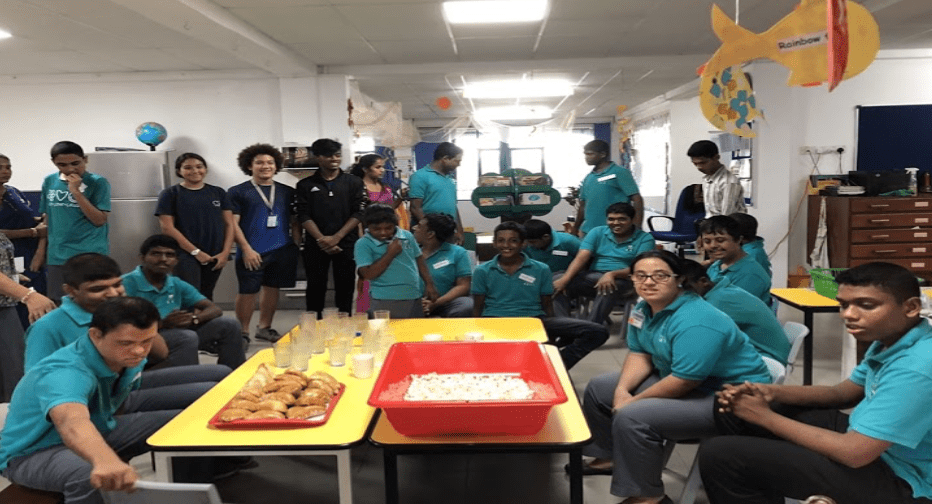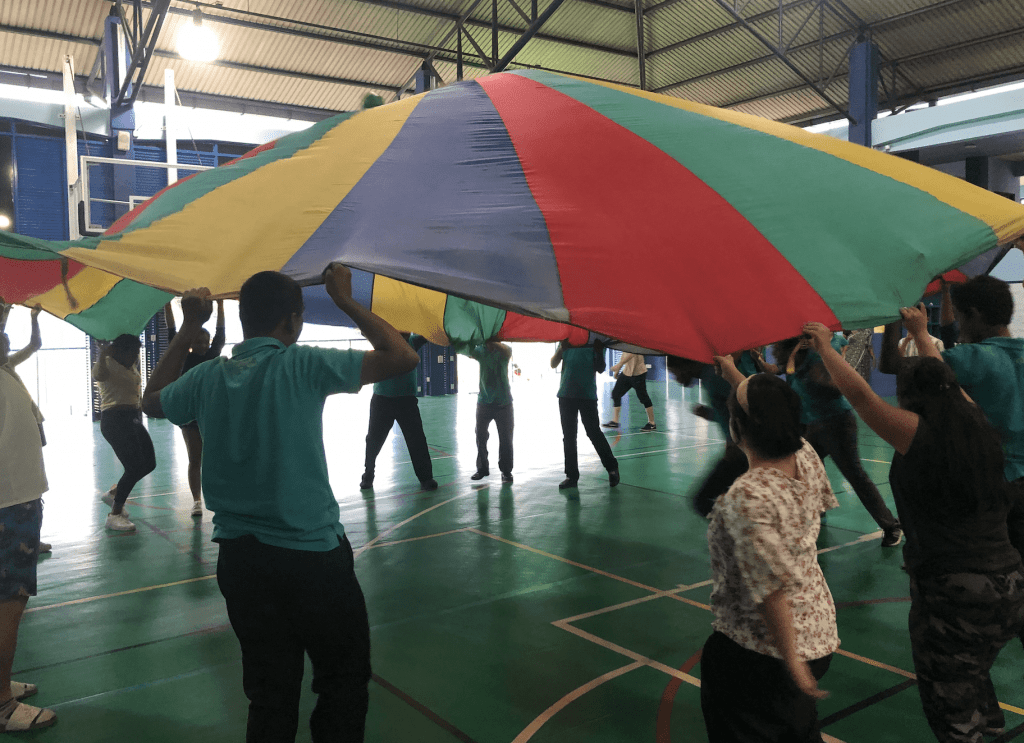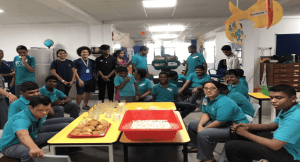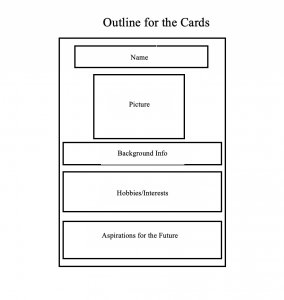
Our Newest Addition: The Buddy System
The New and Improved “Buddy System”
For a while, I have felt that the momentum of our service has somewhat slowed in the past few years and almost become an automated practice rather than an exciting tradition, bustling with energy. Although, we organize a vast range of activities and often change our schedule to make service more exciting so that the students from RCCI can have a new, refreshing experience every time they came to OSC, I often feel like we could increase the intimacy of our activities and bond with the students on a more personal level: having more meaningful conversations about their interests and hobbies, while simultaneously partaking in organized activities.

RCCI students enjoying their snack, overlooking Primary football practice (Photo Credits; Anargi)
Although I have been an active member of this service for the past 4 years and have earned a sense of trust with the older students, I am yet to achieve that level of familiarity with the newcomers who just joined as of this year. Therefore, in order to make myself more available and approachable to the new faces, I suggested we play the ‘Parachute Game’: an activity that encourages collaboration and communication while advocating for a sense of camaraderie. Even though this activity served as a welcome ice breaker, the feeling of familiarity was short lived as those students returned to being shy and more introverted.

The Parachute Game (Photo Credits; Karven)
Therefore, my fellow leaders and I created a system to tackle this issue, which we playfully titled the “Buddy System”. This system will hopefully be used to eradicate any awkwardness between the students of OSC and those from RCCI, as it will allow for easier communication within the service, as a whole. This new addition is essentially a portfolio of each student compiled into a small ID card like format, which details minute details of the chosen student, inclusive of name, interests, hobbies and possible aspirations for the future. Then 2 – 3 of these cards will be assigned to each group member per session, thus encouraging them to interact predominately with those specific students. Then during the next sessions, a new pair of cards will be assigned, providing opportunities to cooperate with new people. The overall incentive for this project is to allow our volunteers to spend time, breaking down the students’ respective barriers, and find some form of middle ground, when sharing hobbies and likes. While being classified as a ‘bonding’ mechanism, this also provides the occasion to improve and nuture their speaking capabilities, while enhancing the ability to hold a pragmatic and meaningful conversation.
The implications of this system will hopefully be dual-pronged given that this not only advocates for familiarity within the service but also provides OSC students with the much-needed exposure to a range of disabilities; thus helping them in the process of learning values of patience and receiving valuable skill sets through empirical (hands on) means. Especially since, one of the goals within the institution is to prepare these students for life within society, with special attention given to their integration into the workforce, practicing and rather perfecting their ability to hold a conversation and think critically, while having a strong social presence is imperative to be successful.

The RCCI students enjoying snacks, after watching Frozen. (Photo Credits; Ms. Nyriz)
Overall, I feel that this system is an effective first step in the path to bridging the gap between OSC volunteers and the RCCI students, in terms of building more intimate and personal relation and staying true to the underlying goals of the service; preparing them for the future. This system will not only impact the students from RCCI, in terms of enhancing their overall interactive skills, but in turn help the service members adopt newfound skills and much – needed exposure to gain essential values, that could be applied to different areas of their lives.
The IB learning outcomes that were evident through this process was:
- Demonstrating how to initiate and plan a CAS experience
This outcome was apparent within this activity, given that this blog post shows the thinking and by extension, planning of the ‘Buddy System’, thereby showing how I initiated and orchestrated out the CAS experience. A follow up post will also be created to show the efficiency of this newly installed scheme.
- Demonstrate the skills and recognize the benefits of working collaboratively.
Collaboration was a word that was frequently referred to within the post, given that the lack of collaboration served as an underlying incentive that triggered the creation of this new addition, given that primary basis for the ‘Buddy System’, was to encourage more colloborative thinking and a collective sense of ‘unity’ within the group.
Outline for the Cards
